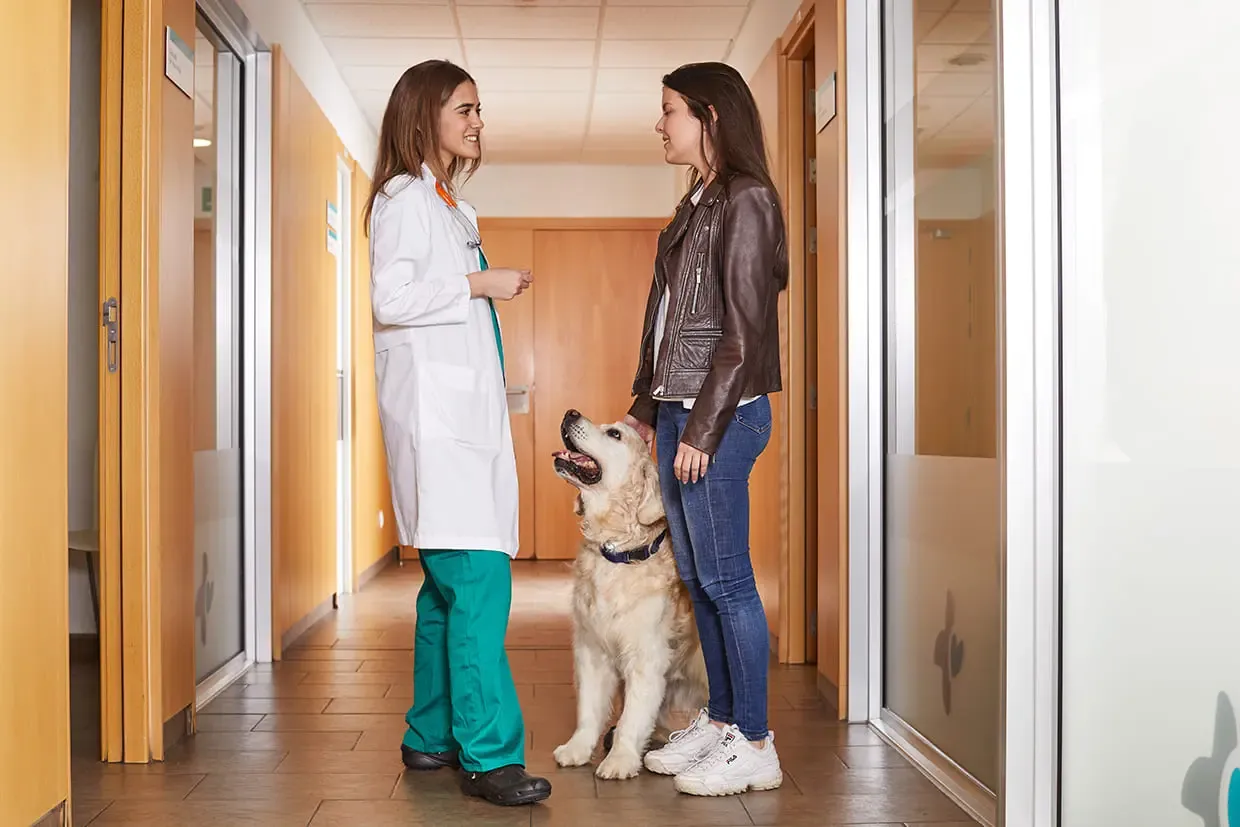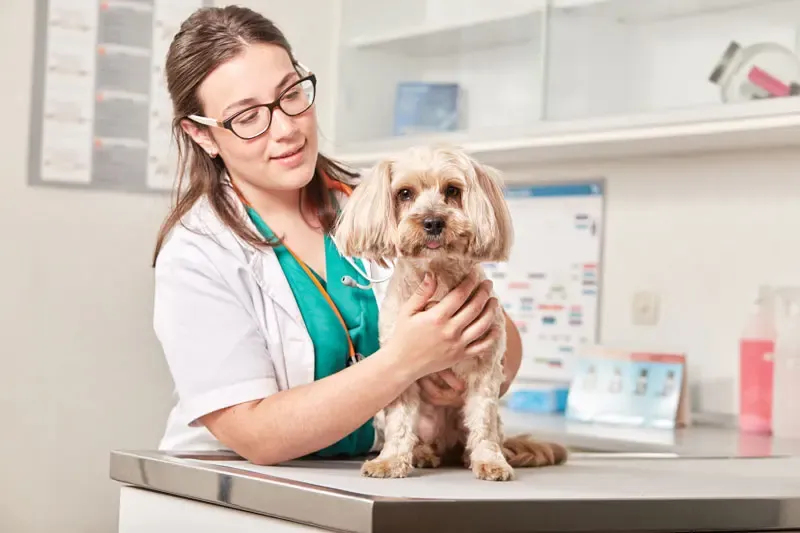However, during diagnosis, these diets are likely to induce a reduction in the clinical signs of skin and gastrointestinal problems , which makes it harder to reach a final diagnosis or opt for another, more suitable diet. Here we discuss whether or not this is a practical problem.
In this post we will focus on the use of hypoallergenic dog foods to treat gastrointestinal disorders; if you are interested in these diets for dermatological problems, we recommend you read this entry .
When should you use hypoallergenic dog food?
In clinical practice, hypoallergenic diets are used to manage chronic enteropathies in dogs diagnosed with a food intolerance.
“When diarrhoea is caused by a food intolerance it will respond to dietary changes, regardless of whether or not it is an immune response.”
Even though a hypoallergenic diet may improve the clinical picture, a food challenge test is recommendable if the aim is to confirm the presence of a food allergy .
Thanks to their high digestibility and low allergenicity, hypoallergenic dog foods also resolve the clinical signs associated with other gastrointestinal diseases that are unrelated to any food allergies or intolerances.
Therefore, a hypoallergenic dog food, such as Advance Hypoallergenic Diet , based on hydrolysed protein can be used to diagnose and treat adverse food reactions . Furthermore, thanks to its high digestibility, low fat content and low allergenicity, it can also be used for other types of gastrointestinal disease such as
- exocrine pancreatic insufficiency
- inflammatory bowel disease
- protein-losing enteropathy
- lymphangiectasia, poor absorption
- hyperlipidaemia
- gastritis
Other special veterinary diets to improve intestinal health
Diet plays a very important role in the resolution of diarrhoea and vomiting , even in cases unrelated to food allergies. Pathogens and allergens mainly enter via the oral route , so reinforcing the immune system through a diet supplemented with plasma immunoglobulins has proven a useful means of treating gastrointestinal disorders.
In fact, the efficacy of diets in these cases is related to a combination of factors:
- digestibility
- reduced antigen loading, by restricting the source of protein and carbohydrates
- provision of hydrolysed protein
- substrate modification for bacterial growth
We suggest watching this video which explains the mechanisms that can disrupt gastrointestinal immunity and how diet is involved in its recovery .
How and when to change from a hypoallergenic diet to another commercial or special diet for GI disorders?
The usual protocol starts with the hypoallergenic dog food for 12 weeks until the resolution or improvement of the clinical signs. Then, after excluding the presence of a food allergy by means of a challenge test, switch to a nonhydrolysed or specific diet for dogs with gastrointestinal problems.
A study1 conducted by Affinity Petcare researchers in conjunction with the University of Bristol, UK , assessed the usefulness and effectiveness of two diets for the management of chronic inflammatory enteropathies in dogs: a hypoallergenic diet ( Advance Hypoallergenic, HA ) and a highly digestible diet ( Advance Gastroenteric Low Fat, GELF ) containing bioactive plasma proteins (immunoglobulins).
In most cases, both diets resolved the clinical signs within a few days or weeks. You can request the study report from Vetsaffinity and check the results yourself.
Bibliography:
- Lynch, A. A study of dietary modulation in canine inflammatory enteropathies. PhD thesis, University of Bristol, 2013. Available at: http://ethos.bl.uk/OrderDetails.do?uin=uk.bl.ethos.573497









